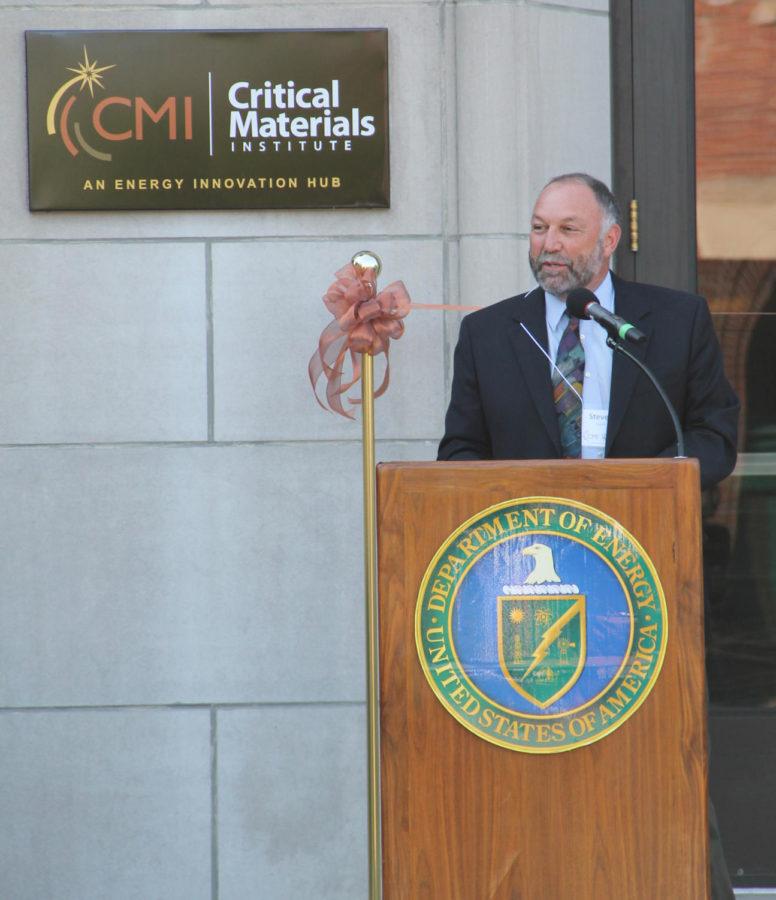U.S. Department of Energy opens Critical Materials Institute on campus
U.S. Dept. of Energy's Ames Laboratory
President Leath speaks at the unveiling of plans to build for Ames Laboratory.
September 11, 2013
The U.S. Department of Energy’s new Critical Materials Institute has opened its doors at Iowa State.
The ribbon cutting ceremony was Sept. 10, with President Steven Leath, Sarah Rajala, dean of the College of Engineering, and Warren Madden, senior vice president for Business and Finance, as speakers.
The institute is the newest addition to the DOE’s Ames Laboratory and is an Energy Innovation Hub — the fifth one in the nation.
The institute’s purpose, according to a news release from the Ames Lab, is to develop solutions to domestic shortages of rare earth metals and other materials to U.S. energy security.
“We are looking at cases where there isn’t enough resources to fit the need,” said Alexander King, director of the institute. “We’re trying to create technology that makes mining cheaper and more environmentally friendly, looking for substitute elements and during the manufacturing process how we can be more efficient.”
The DOE announced in January that Iowa State had been selected to house the new institute and was awarded $120 million in funding for five years. The money will go toward research and already has paid for renovations to Wilhelm Hall, where the institute is housed.
King said the new site is important for the innovation of renewable energy in the United States. King also pointed out the need for the institute is not only environmentally important but economically.
“The number of places we can get materials from is limited,” King said. “Our job is to reassure that there is a sufficient supply at stable prices so we can manufacture these [renewable] products here and maintain jobs.”
Many elements and metals the U.S. has needed to produce certain products are in short demand, so many of the materials needed have been imported from China. King said China has begun to export fewer and fewer of these materials in order to meet their own demand, therefore enabling the need for research from the institute.
Some of the items that are manufactured from the materials are wind turbines, solar panels, electric vehicles and energy efficient lighting.
Tom Lograsso, interim director of the Ames Lab, said the four focus areas of the new institute are to find ways to diversify the nation’s supply of resources, to find substitutes in order to reduce foreign dependence, to increase the efficiency of manufacturing products and to use the three other focuses to help provide solutions to achieve each objective.
“It really is key to the CMI to find solutions,” Lograsso said. “Sometimes it is geothermal, economics or even politics that are the key factors.”
The Ames Lab is one of 17 DOE laboratories across the nation. Iowa State has a contract with the DOE to operate the lab which they receive funding for. Even though the lab is a federal facility, the university and the laboratory have crossover with professors, students and research.

















